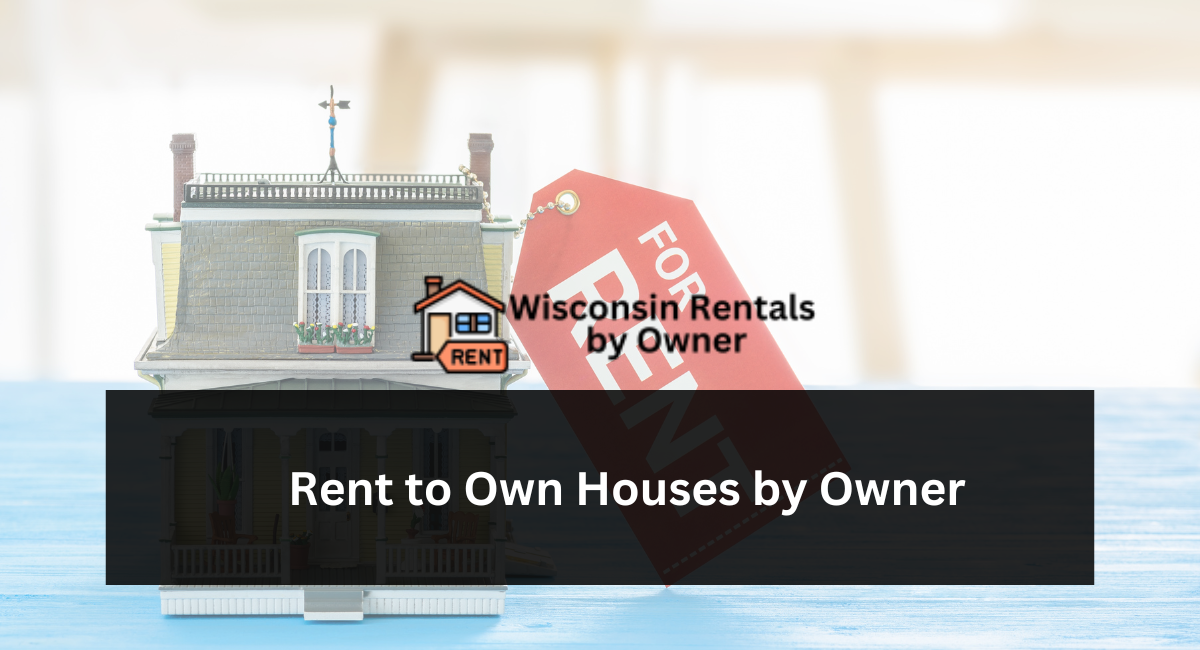Rent-to-own is an attractive solution if you want to own your own home but require extra time and resources for saving for a down payment or building credit. But keep in mind there may be fees involved.
Your total monthly costs could include nonrefundable option fees and above-market rental prices, which may add an unexpected expense.
The process
Rent to own houses by owner may seem similar to buying, but there are key distinctions. Consulting a real estate attorney will help ensure you understand and avoid hidden issues with the contract, while working with an experienced real estate agent can help find you an appropriate mortgage loan product.
Furthermore, using this period for rent to own allows you to reduce moving costs, improve credit scores, save more and increase income before finally purchasing a home.
Rent-to-own contracts come in two varieties: lease with option to purchase and lease-purchase agreement. Under a lease with option to purchase contract, a portion of your monthly rent goes toward reducing the sales price at the end of your rental period.
With a lease-purchase agreement being more like traditional sales as it grants the right (but not obligation) of purchasing at the end of each rental term.
As part of your rent-to-own contract negotiations, make sure that the sales price is agreed to in writing by both parties and that title history checks indicate ownership by free and clear title holders only. Furthermore, have a home inspection conducted to identify any issues that might impede value and performance in your new home.
Finding a property
Rent to own homes offer home buyers who want to improve their credit, increase income and save for a down payment an excellent opportunity to do just that. Most rent-to-own agreements help the buyer ease into home ownership by automatically applying money toward purchase price with each monthly rent payment; plus first time home buyers often have access to programs that can assist them afford a deposit.
Typically, sellers charge an option fee for renting their house out on rent-to-buy terms, after which renters will pay rent until deciding if they wish to make payments or apply for a mortgage – in which case, the traditional application process begins again.
Rent-to-own contracts should clearly outline how the home’s purchase price will be established. This may be determined at the time of signing or by its current market value when your lease ends; the former option can be helpful when home prices are rising while paying more than is worth is possible if local economies decline; an option that depends on market values could even result in paying more than what a mortgage lender would loan you is more suitable.
Negotiating the deal
Rent to own deals differ from traditional home purchases in that there’s usually no agent involved when negotiating home prices; buyers themselves must conduct research into comparable home sales and neighborhood home values to establish how much of an offer to accept from sellers on their purchase price of property they wish to make.
Remind yourself that many rent-to-own contracts specify an upfront purchase price, often based on market data or what the seller predicts at the end of the lease term, which could last as much as two years. Unfortunately, this could lead to overpaying on property that does not appreciate in value over time if the price remains fixed.
Rent-to-own contracts may also require buyers to cover expenses such as homeowners association dues and property taxes during their lease term. Therefore, it’s wise to read carefully through the contract and inquire with the seller about adding you as an additional insured on their homeowner’s policy. It would also be beneficial for buyers and sellers alike to consult an attorney who specializes in New York property law about this agreement and home.
Closing
Rent-to-own homes offer buyers who cannot qualify for mortgages an option to strengthen their finances, build savings and improve credit. But as with any home purchase process, rent-to-own arrangements should be treated like regular purchases: get an inspection performed, review seller credit reports and conduct title searches as if purchasing traditional. Also look into first-time home buyer assistance programs which could assist in covering down payments and closing costs.
As part of your lease agreement, you’ll work out a purchase price with your landlord during this phase. It could be determined based on current market values or what the seller estimates it will be at the end of your lease term; either option could mean paying more than necessary.
At the end of your lease agreement, landlords may change their mind about selling you property – this is particularly common with independent or family-run rental agencies. When working with larger institutions, make sure your contract clearly states who holds down payment money and how disputes should be settled; additionally these larger rent-to-own companies frequently provide access to consumer resources for credit repair and counseling that could assist borrowers with poor credit scores.
Conclusion
Rent-to-own homes offered by owners provide a unique opportunity for aspiring homeowners to gradually transition from renting to owning. This arrangement offers flexibility and a pathway to homeownership for those unable to purchase immediately.
Ultimately, while rent-to-own homes by owners present an alternative path to homeownership, thorough understanding and careful consideration of the agreement terms are essential before committing to this arrangement.

Leave a Reply